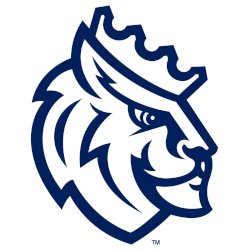This story initially appeared on Behind the Whistle, the official blog of the IWLCA, and is being republished with permission from the organization. Ashleigh Gundy is a defender and midfielder at Cornell University.
The three bricks that my teammates and I touch walking in and out of our locker room say “Hard Work,” “Positive Attitude” and “Team First,” and instill a mindset in which race has no basis. Playing lacrosse in college has taught me several life lessons that I would not have fully understood my freshman year. I have learned about the importance of putting my team first, as well as how to adapt to different situations.
Being a member of the Cornell women’s lacrosse team for four years, I have encountered numerous opportunities, but most importantly, I have gained a new perspective on the team dynamic. As I embark on the professional realm of my life, Cornell lacrosse has prepared me for the next part of my journey. I am excited about my future, thankful for my Cornell lacrosse family, as well as the opportunity to bring attention to the abundance of diverse talent within this sport.
I grew up in a suburb outside of Philadelphia, where I attended private school since pre-k. I found myself living, learning and playing lacrosse in a predominantly white space. While I learned how to navigate these white spaces, I never forgot that I was a Black woman. I played lacrosse for two club teams where there were very few players who looked like me. After attending private school and being recruited to Cornell, I was not one of a few. I became the only person of color. This experience has been eye-opening, but most importantly full of life lessons, discomfort, new perspectives and growth.
On Tuesday, November 2, 2021, I had the privilege of speaking with Tina Sloan Green, who was the head lacrosse coach of the Temple Owls from 1975-92. She congratulated me for being named the inaugural recipient of the Tina Sloan Green Award and spoke to me about the importance of leadership, courage and bravery on and off the field. Tina Sloan Green embodied strength, resilience, determination and a desire to lead her team to be the best. While discussing her achievements as the first Black head coach in the history of women’s intercollegiate lacrosse, she expressed her joy but also stressed togetherness.
In leading Temple to three national championships, she explained the importance of teamwork and unity, and repeatedly said, “We’re all in this together.” That really resonated with me and my experiences playing lacrosse from middle school until now because as much as it is about winning, it is more about winning as a cohesive unit and putting differences aside. I was elated when I received the news that I would travel to Dallas, Texas, to receive this prestigious award and speak at the IWLCA Hall of Fame and Honors Banquet to college coaches, Hall of Fame honorees and guests. I was grateful for the opportunity to be part of Tina Sloan Green’s legacy. I was even more humbled to sit beside my parents and other college coaches while my head coach, Jenny Graap, stood at the podium and spoke about me as a leader. Coach Graap emphasized my courage in educating my teammates, willingness to have uncomfortable conversations, as well as my involvement in organizations whose goal is to improve equity and inclusion.
Since high school, I have always enjoyed being involved in extracurricular activities. At Cornell, I am one of the social justice committee leaders for women’s lacrosse, the chairwoman of the Black Student Athletic Committee, an active member of Women of Cornell in Athletics (WOCA), and during my junior year, I joined BlackGen Capital, Cornell’s first underrepresented minority investment fund. Throughout my experiences in these different organizations, I have worked to improve equity and inclusion for underrepresented minorities.


























































